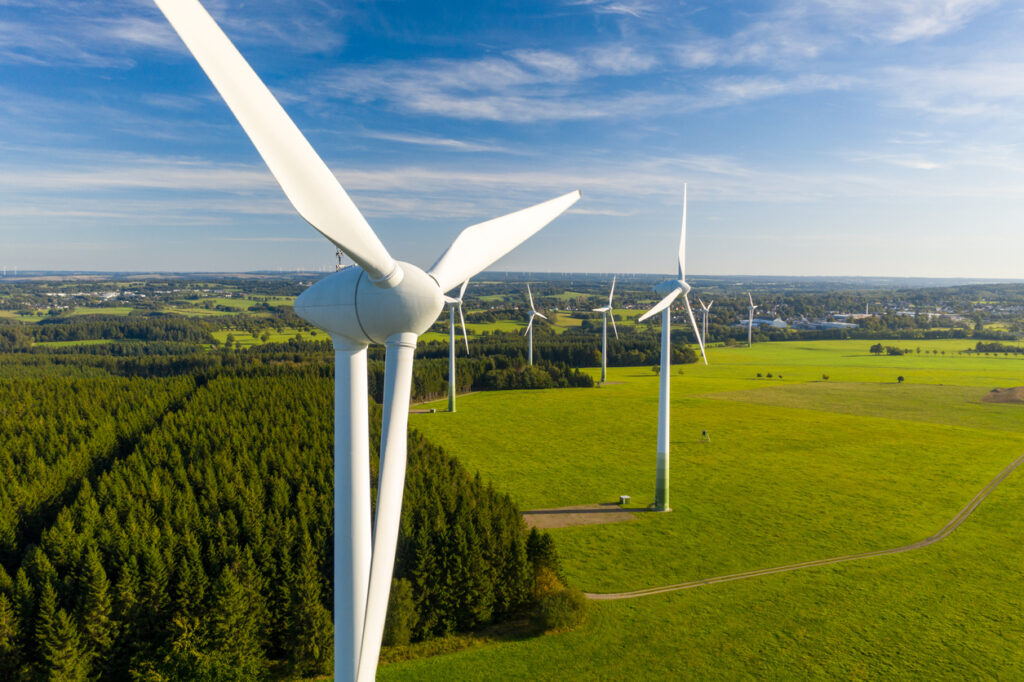As climate change influences more extreme weather events, an expert roundtable has urged greater consideration be paid to the impact weather conditions have on wind production in the UK.
Weather conditions effect energy supply as well as demand and in July 2023, an expert roundtable, chaired by Stephen Belcher, chief scientific adviser at the Met Office, sat down to investigate how well we understand the impacts of weather conditions on the UK’s wind and solar supply.
The meeting note discussing this roundtable’s findings was published yesterday (21 November).
One of the vulnerabilities within the UK’s wind market highlighted by the roundtable was in the probability of wind draughts during periods of increased air conditioning use as temperatures rise, bumping up energy demand.
According to the meeting note, the extension of the storm track (the course of a cyclone or storm system) and jet stream (a narrow variable band of very strong air currents encircling the globe several miles above the Earth) into europe is likely, reducing the likelihood of wind draughts in winter months.
In summer however, the jet stream is expected to shift poleward, increasing the potential for wind draughts.
“The large scale of wind droughts (which often coincide with heat in summer and cold weather in winter) means power deficits in Europe and the UK are likely to coincide, preventing the use of interconnectors to balance the demand to the UK grid,” continued the meeting note.
Happily, traditional methods of forecasting are still effective for predicting electricity generation from wind, in varying weathers as similar wind conditions are often geographically widespread.
Wind turbine resilience
Unfortunately, as climate change continues, extreme wind conditions will increase both in severity and frequency, significantly impacting a wind turbine’s ability to generate power.
Turbines do have operational envelopes for wind conditions, however outside of these design conditions, power production will be reduced or stopped.
High wind speed ride-through mechanisms can help reduce this by enabling turbines to provide power at higher winds rather than shutting down abruptly. Most modern megawatt-scale turbines feature this mechanism, and it can be retrofitted but these comes at a cost and its compatibility cannot be guaranteed.
In addition, although predicted increases in UK temperature are less likely to cause turbine shutdown, it may reduce production.
Part of this article came from our sister site Solar Power Portal. To read how climate change is affecting UK’s solar production click here.






